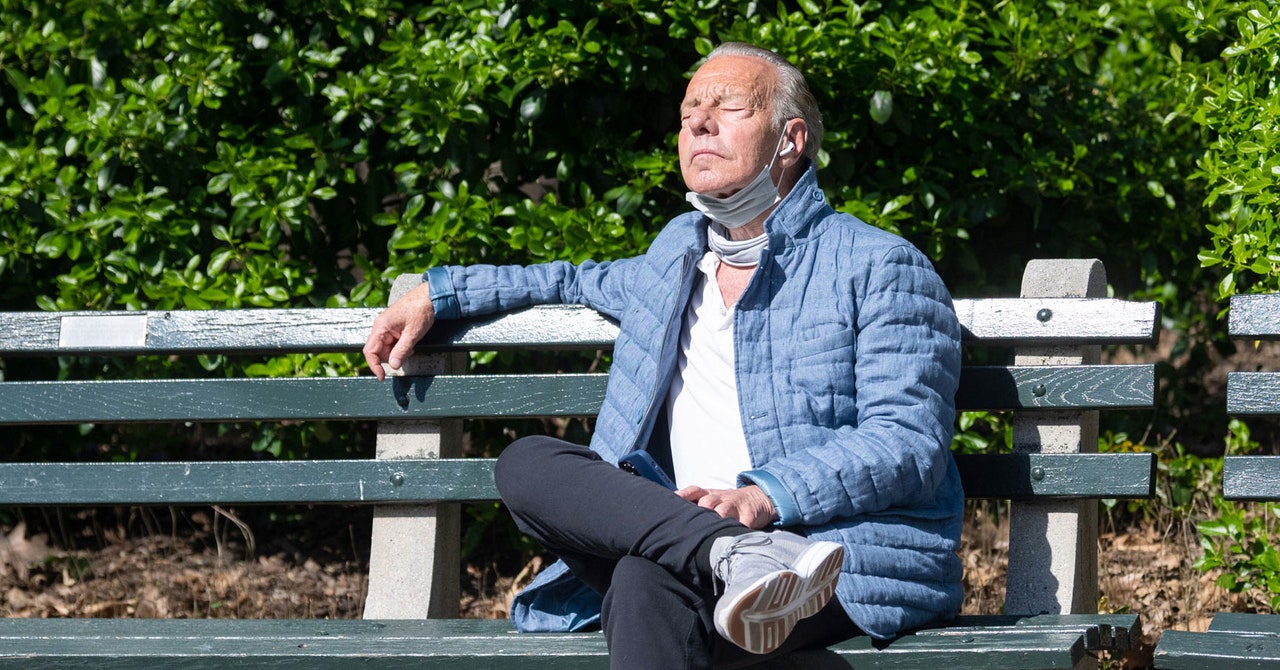
Outdoor concerts, for example, often have people tightly packed together for several hours and carry more risk, Popescu says. “Ventilation is important and there’s great ventilation outside, but that can only do so much when you’re shoulder-to-shoulder with hundreds of people for hours, yelling and shouting,” she says.
But I’m Healthy and a Risk-Taker
Aside from the guidelines above, there are two basic factors to think about in deciding whether to wear a mask: protecting yourself and protecting others. Unless you’ve been completely away from all people and had a negative Covid test that morning, you have to assume there’s always a chance you’re infected, and therefore that you could infect others.
If you’ll be around people at high risk for infection or severe disease—such as immune-compromised people, unvaccinated children, older adults, or someone with a high-risk condition—it’s safest to wear a mask to protect them from you. In places like grocery stores and pharmacies, where nearly everyone needs to go even if they’re in a high-risk group, the considerate thing to do is always wear a mask, regardless of local transmission rates, because you don’t know if you’ll be around vulnerable folks.
In places like restaurants, bars, and home get-togethers where you’re not required to wear a mask, your decision depends more on your own level of risk tolerance. How much risk of exposure are you comfortable with in exchange for not wearing a mask?
“There’s a framework of interventions that are important to prevent you from getting Covid, and then there’s people’s risk factors for a bad outcome,” says Anthony Harris, an epidemiologist at the University of Maryland School of Medicine. “If you combine those two hierarchies with someone’s own subjective assessment of risk, that’s how they should make decisions. There’s no black or white.”
Aside from local infection rates, you have several factors to consider:
- How likely are you to develop severe disease if you have a breakthrough infection? If you’re in your 70s or immune-compromised, you may fare worse with a breakthrough infection even if it doesn’t kill you.
- Are others around you vaccinated or unvaccinated? (If you don’t know, assume some are unvaccinated.)
- How close are you to others?
- How long are you there or how long are you close to others?
- How big is the area?
- How well ventilated is the area?
Mask Quality Matters Too
Also keep in mind that not all masks are created equally.
“I encourage people to focus on utilizing a quality mask, which is about fit and filtration,” Popscu says. “Ensuring the quality of masks becomes that much more important indoors.”
Michael Osterholm, director of the Center for Infectious Disease Research and Policy at the University of Minnesota, has advocated for months that Americans wear better protection than cloth masks, whose quality and effectiveness vary greatly. In the first half of 2020, public health experts discouraged the general public from wearing N95, KN95, and similar respirator masks so that healthcare workers had enough. But now, Osterholm says, healthcare workers and other professions who need respirators have plenty. There’s no reason the general public shouldn’t regularly wear these much more effective masks too. If nothing else, pair a cloth mask with a medical mask.
Ventilation, Ventilation, Ventilation
Of the factors above, that last one is among the most important, says Alex Huffman, an atmospheric chemist who studies bioaerosols at the University of Denver. The reason “outdoors is dramatically safer than indoors” is that virus particles exhaled by others don’t have a chance to build up. They just float up and away. Indoors is a different story.
The virus-containing aerosols that an infected person exhales “get mixed into the room and can build up in concentration if the ventilation is insufficient,” Huffman says. In a stagnant room where the aerosols build up, it takes fewer breaths to inhale enough virus to become infected. Room volume matters too, he says.


